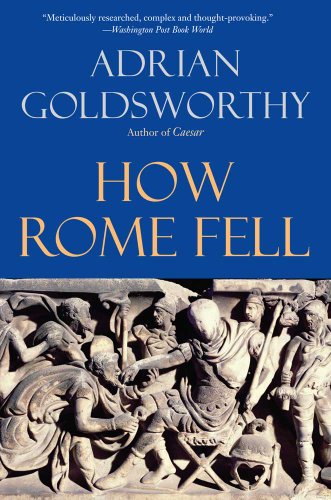

Most ebook files are in PDF format, so you can easily read them using various software such as Foxit Reader or directly on the Google Chrome browser.
Some ebook files are released by publishers in other formats such as .awz, .mobi, .epub, .fb2, etc. You may need to install specific software to read these formats on mobile/PC, such as Calibre.
Please read the tutorial at this link: https://ebookbell.com/faq
We offer FREE conversion to the popular formats you request; however, this may take some time. Therefore, right after payment, please email us, and we will try to provide the service as quickly as possible.
For some exceptional file formats or broken links (if any), please refrain from opening any disputes. Instead, email us first, and we will try to assist within a maximum of 6 hours.
EbookBell Team

0.0
0 reviewsA major new history of the fall of the Roman Empire, by the prizewinning author ofCaesar This was a period of remarkable
In AD 200, the Roman Empire seemed unassailable, its vast territory
accounting for most of the known world. By the end of the fifth century,
Roman rule had vanished in western Europe and much of northern Africa,
and only a shrunken Eastern Empire remained. In his account of the fall
of the Roman Empire, prizewinning author Adrian Goldsworthy examines the
painful centuries of the superpower's decline. Bringing history to life
through the stories of the men, women, heroes, and villains involved,
the author uncovers surprising lessons about the rise and fall of great
nations.
personalities, from the philosopher-emperor Marcus Aurelius to emperors
like Diocletian, who portrayed themselves as tough, even brutal,
soldiers. It was a time of revolutionary ideas, especially in religion,
as Christianity went from persecuted sect to the religion of state and
emperors. Goldsworthy pays particular attention to the willingness of
Roman soldiers to fight and kill each other. Ultimately, this is the
story of how an empire without a serious rival rotted from within, its
rulers and institutions putting short-term ambition and personal
survival over the wider good of the state.